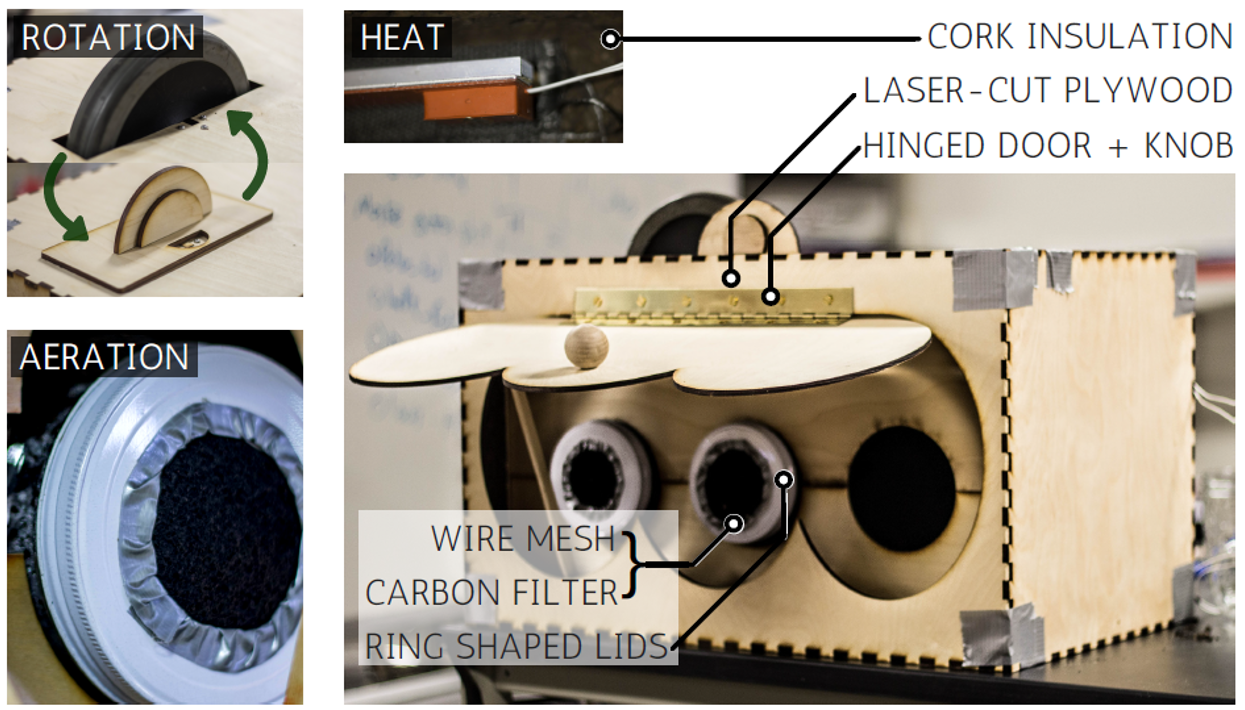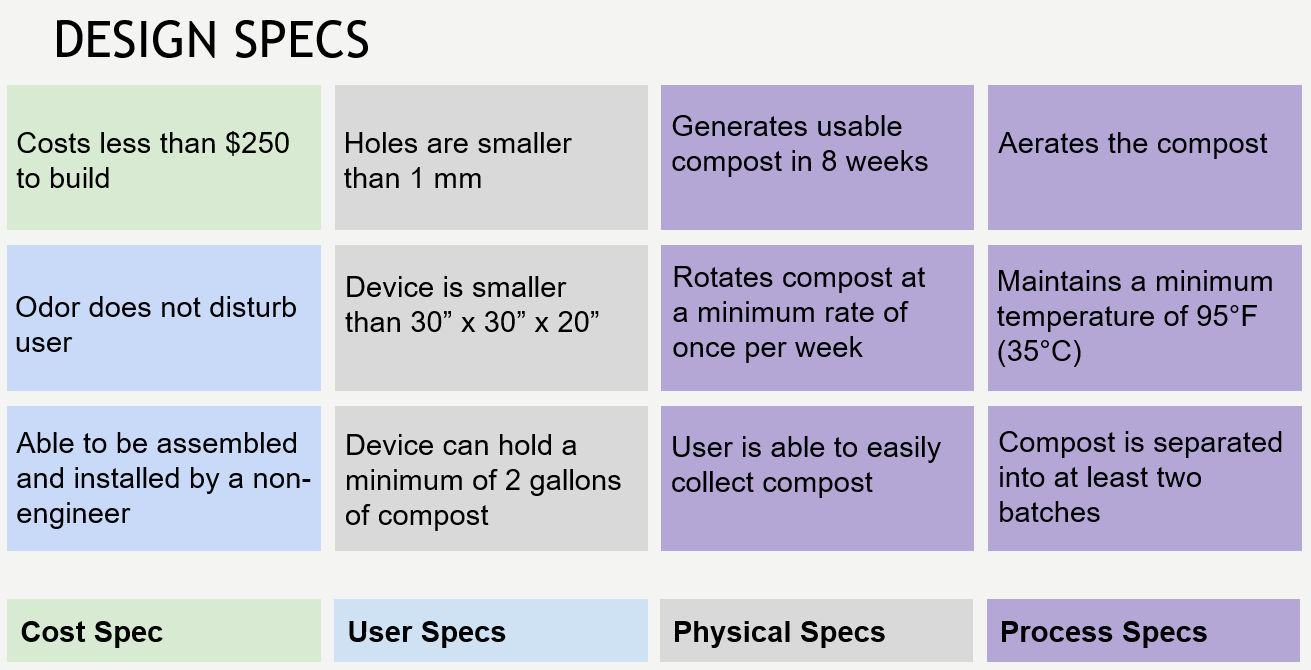
S E N I O R D E S I G N P R O J E C T
Compost-Mate
I led a team of 6 engineers through design, build, and implementation of a high-speed composter that is able to convert food waste to usable compost in 15 days.
Composter is still in use in sustainable apartment complex in Sweden
Our team won the HSB Living Lab Innovation Competition in 2018
Two Compost-Mate prototypes are part of the Deep Space Habitation project at NASA’s Houston Space Center
U.S. Food Waste Problem
30-40% of usable food goes to waste each year in the United States. If wasted food were a country, it would be the third largest producer of carbon dioxide in the world. The U.S. lacks a BioLoop, a.k.a a cycle for carbon-based waste to recapture nutrients from food, similar to plastic and metal recycling.
Compost-Mate Mission Statement
Create an apartment-scale composter that is able to convert ground-up food waste into usable fertilizer while engaging and educating the user about food waste.
Compost generated from food waste by the Compost-Mate in just 15 days (feat. complimentary 3D printed shovel)
Compost-Mate Design
In order to promote decomposition of food waste, five essential elements need to be present:
My Role
I had the pleasure of leading the Compost-Mate senior design team. As the team leader, I gave the product pitches, managed customer relations, and created competition materials for various design competitions.
Additionally, I designed the rotation method. Initially, I started with a conveyer belt design with one automated drive wheel and three free spinning wheels that the jars would rest on. However, when talking with the architect of a sustainable apartment complex in Sweden, he argued that the user should be involved in the compost making process. As a result, I switched the design to a manual wheel that can be accessed from the top of the unit. All three jars sit on sets of wheels with smooth bearings. When the user spins the wheel, the jars spin as well and thoroughly mix the compost. The manual approach ended up being lighter and also reduced the chance of the rotation system failing.
The Compost-Mate provides all functionality necessary to create compost while still being completely recyclable itself
Product Development
Copious time was spent with the customers: NASA and a Swedish Apartment Complex to understand the needs of the users. Additionally, as a team, we visited industrial compost facilities and talked with biologists to understand the necessary attributes of successful composting. Spending time up front to layout design requirements payed dividends later.
We created a Functional Decomposition Chart to break down the complex nature of composting
Compost-Mate Implementation
HSB LIVING LAB
We were fortunate enough to have end users for our Compost-Mate. The Compost-Mate was installed in the HSB Living Lab, an apartment complex in Sweden that trials new technologies. The apartment complex is filled with sensors and willing participants to get immediate feedback on new designs. The Compost-Mate was installed in the Spring of 2018 and is still in use today. Composting times have been reported to be, on average, 15 days.
HSB Living Lab, a Sustainable Apartment Complex in Sweden that trials innovative technologies
HSB Living Lab Common Space - Final Resting Place of one of our Compost-Mate Prototypes
HSB Living Lab Innovation Competition Finals
NASA’S DEEP SPACE HABIATION PROJECT
Two Compost-Mate Prototypes have been used for the Deep Space Habitation Project at NASA. The mission of the project is to develop sustainable living quarters, workspaces, and laboratories that can be used on the Moon and on Mars. The Compost-Mate pairs well with NASA’s plant growth experiments. Once the plants are harvested, they are put in the Compost-Mate to recapture nutrients.












